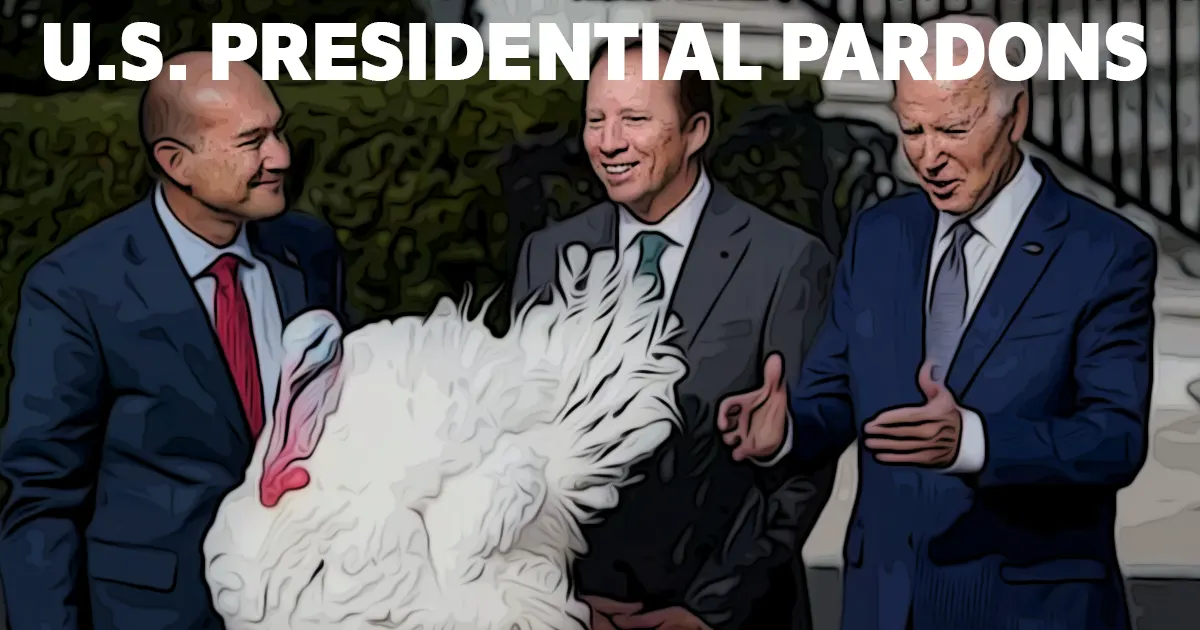GS2-polity

Context:
In November 2024, outgoing U.S. President Joe Biden issued an unconditional pardon for his son, covering federal offenses from 2014 to 2024, reigniting debates about the scope and use of presidential clemency.
Presidential Pardons:
Authorized under Article II, Section 2 of the U.S. Constitution, presidential pardons grant clemency for federal crimes, excluding impeachment cases. They aim to ensure justice, compassion, and system corrections.
Significance of Presidential Pardons:
- Addressing Judicial Overreach: Corrects excessive or unjust legal penalties.
- Humanitarian Relief: Grants clemency for special circumstances or reformed behavior.
- Political Reconciliation: Mitigates ideological conflicts by pardoning related offenses.
- Rectifying Wrongful Convictions: Offers relief for legal errors or racial injustices.
- Rehabilitation Support: Eases reintegration into society by mitigating consequences.
- Flexibility in Justice: Provides discretion for fairness in unique cases.
Challenges of U.S. Presidential Pardons:
- Political Exploitation: Shielding allies or family, as seen with Clinton and Biden pardons.
- Broad Terms: Extending clemency to unrelated crimes undermines judicial integrity.
- Polarization: Deepens political divisions, e.g., Trump’s pardons of Bannon and Flynn.
- Bias and Inequity: Perceptions of favoritism erode public trust.
- Lack of Oversight: Absence of formal checks invites misuse.
- Erosion of Rule of Law: Perceived unequal application of justice weakens institutions.
- Global Criticism: High-profile pardons tarnish U.S. credibility.
- Encouraging Corruption: Pardoning political figures emboldens unethical practices.
Comparison with India:
| Aspect | India (Article 72) | USA (Article II, Section 2) |
| Scope | Offenses under Union law, death penalties, and military cases. | Federal crimes only, excluding state offenses. |
| Types of Clemency | Pardon, reprieve, respite, remission, commutation. | Pardon, reprieve, commutation. |
| Parliamentary Influence | Requires Council of Ministers’ advice under Article 74. | Independent exercise without legislative advice. |
| Judicial Review | Subject to judicial scrutiny for arbitrariness. | Not typically subject to judicial review. |
| Transparency | Decisions often opaque. | Decisions publicly announced. |
International Comparisons:
- UK: Royal pardons are rare and carefully scrutinized by the Ministry of Justice.
- Canada: Pardons are granted by the Parole Board through a rigorous, transparent process.
Way Forward:
- Codify clear guidelines to prevent misuse.
- Establish independent advisory mechanisms for clemency recommendations.
- Mandate public disclosure of pardon rationale.
- Introduce legislative oversight for controversial cases.
- Learn from global best practices, emphasizing transparency and ethical processes.




